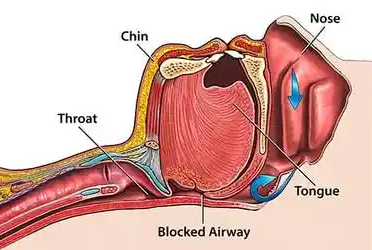
Common cold is a viral infectious disease that affects the upper respiratory tracts, which includes your nose, throat, sinuses and trachea (windpipe). It is contagious and is caused by over 200 different viruses, rhinovirus being the most common cause. This article will tell you about all you need to know about common cold
Just as its name implies, the common cold is widespread. You will probably have more colds in your lifetime than any other illness. Adults catch 2-3 colds a year, while young children come down with about 4 or more times a year.
They usually last for about 7–10 days, though it may linger in people that smoke.
Symptoms Of Common Cold
One important thing to know about common cold, is that symptoms may vary from person to person and appears 1-3 days after exposure to cold. They include
- Cough
- Sore throat
- Sneezing
- Running nose
- Nasal Congestion
- Low-grade fever
- Headache
- Muscle ache
- Fatigue
- Loss of appetite.
The color of the mucus or nasal secretion may vary from clear to yellow to green and does not indicate the class of agent causing the infection.
Causes Of Common Cold
Many viruses can cause this, when they enter your body system through the openings but rhinoviruses are the most common cause.
The virus spreads through air droplets when people cough or sneeze, it can also spread through body contacts with infected people and sharing their materials like towels, eating utensils, telephones etc.
When a virus enters the body, the immune system tries to fight it. In a person with a strong immune system, symptoms may not develop.
How to Boost the Immune System Naturally
Simple Lifestyle That Reduce Aging Processes
Risk factors
The risk factors includes
Age: Children have a higher risk of catching it if exposed to cold.
Weak Immune System: People with weak immune system often experience common cold because their body cannot fight the disease.
Season: Both children and adults are more likely to get colds in Raining season, but you can get a cold anytime.
Exposure: Being around crowd increases your risk if people there are infected.
Smoking: Smoking increase the risk of the virus.
Complications
A cold is not usually serious, and colds mostly disappear after 7–10 days . Sometimes, however, complications can occur. These are most likely to affect those with a weakened immune system.
They include:
- Acute sinusitis
- Pneumonia
- Acute bronchitis
- Bronchiolitis
- Asthma
- Otitis media (middle ear infection)
- Strep throat
A cold can worsen the symptoms of asthma and chronic obstructive pulmonary disease (COPD) — which includes emphysema and chronic bronchitis. If these occur, its best to seek a doctors help.
Prevention
Things we can do to reduce the spread of the virus
- Regular washing of your hands with soap and water.
- Avoid touching your body openings(nose,eyes,ear,mouth and anus) with unwashed hands
- Avoid crowd if possible or infected people.
- Sneeze or cough into a tissue paper or handkerchief.
- Eat healthy meals especially fruits and vegetables.
Treatment
There is no cure or vaccine for common cold, though the following management procedures can help;
- Getting plenty of rest
- Drinking fluids to maintain hydration
- Gargling with warm salt water
- Inhale steam, which may help relieve nasal congestion.
Related posts: Improve your Sperm Motility and Viability with these Foods
Healthy Tips To Maintain A Good Eyesight
Cloudy Urine: 8 Causes and What it Means
Genital Warts (HPV): How to get rid of Genital Warts Forever
Things To Know About Vaginal Itching And Causes







Leave a Reply